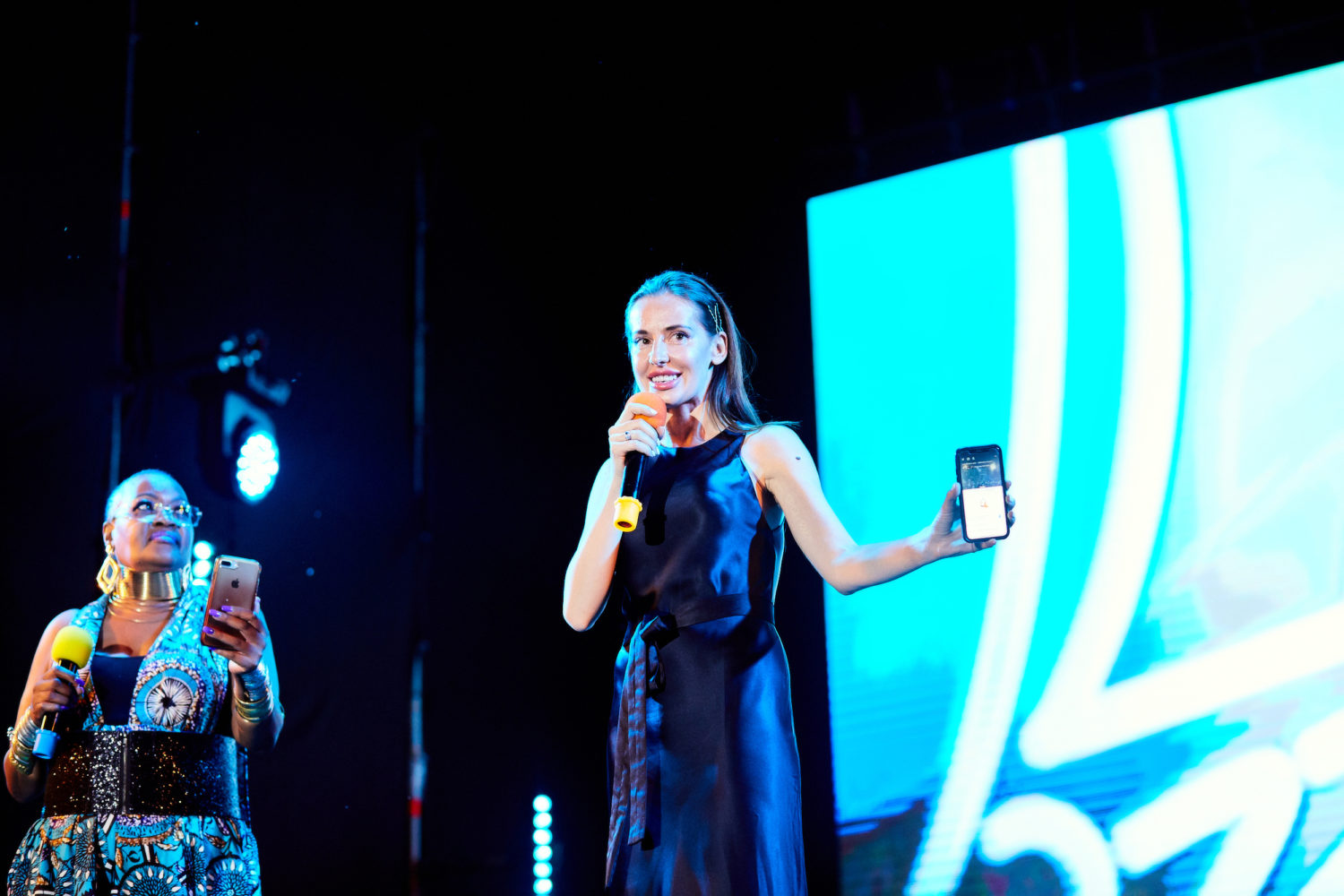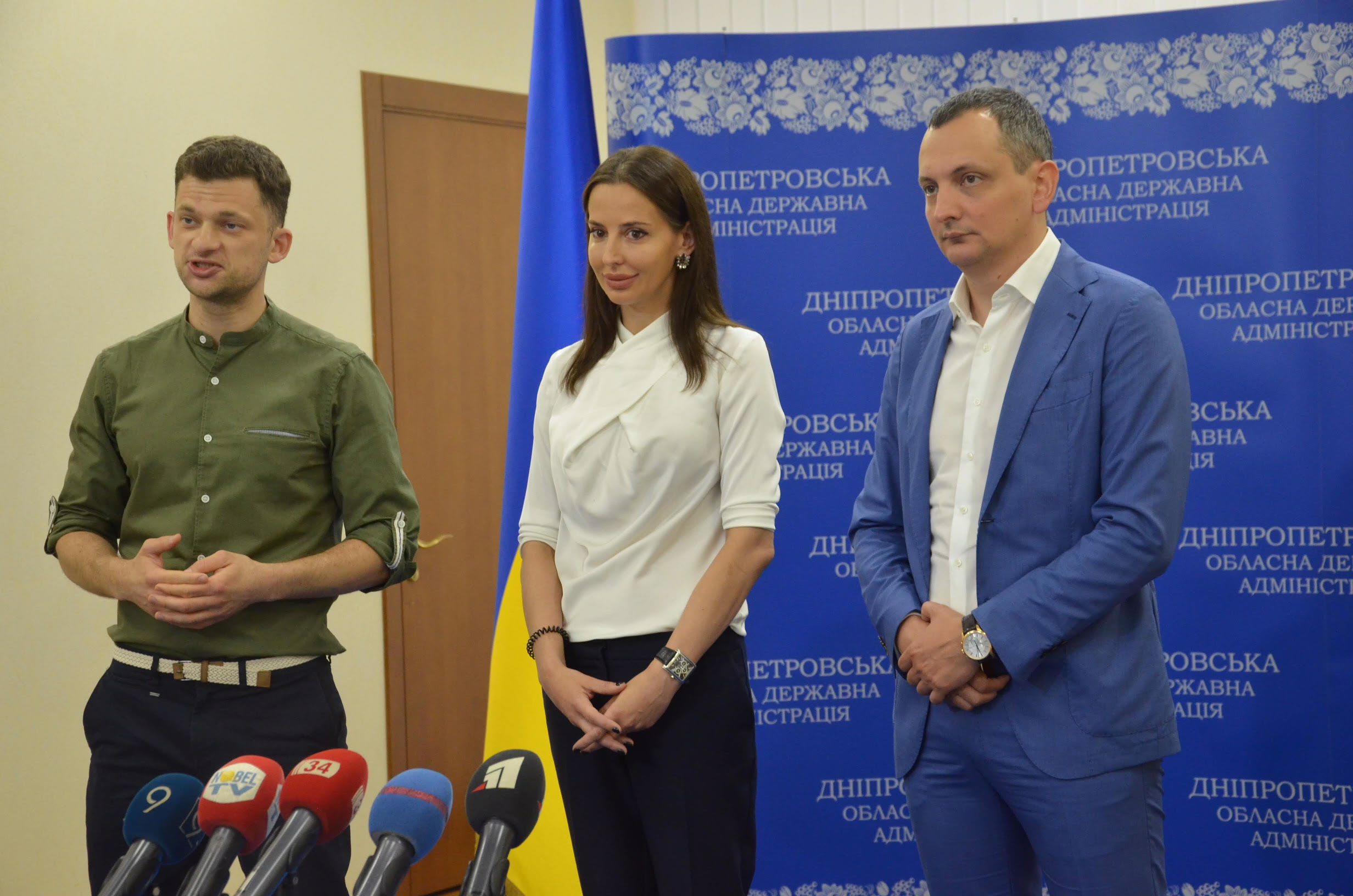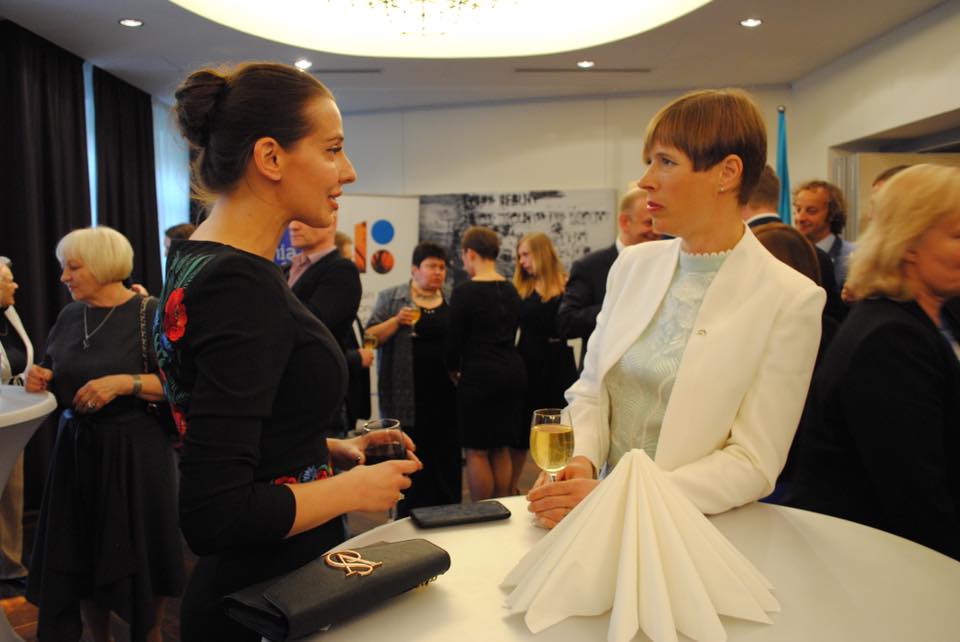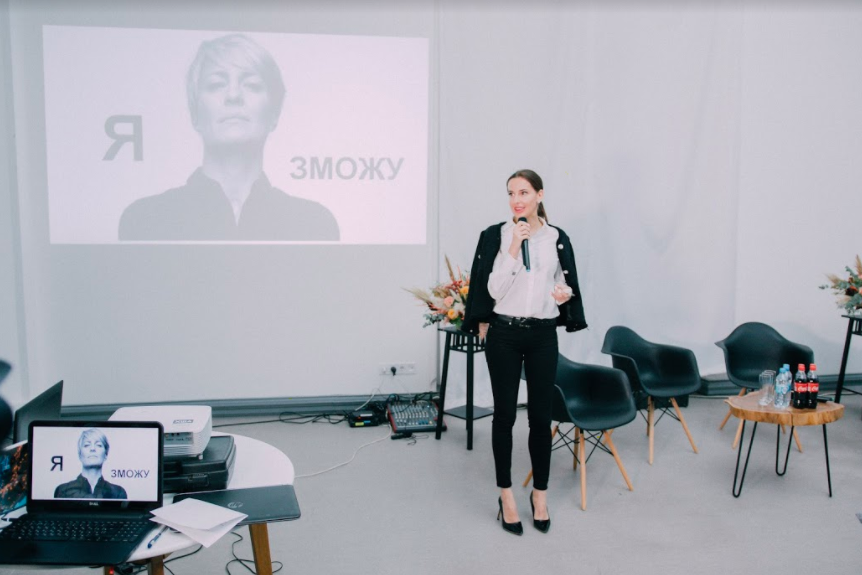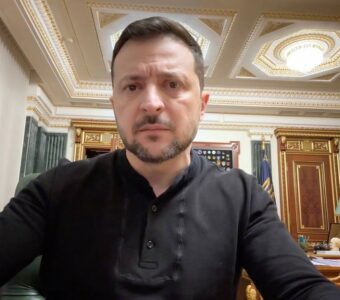Woman in IT: advancing E-reforms, breaking stereotypes. Story of Jaanika Merilo
Mobile-ID and Bank-ID, digital transformation of Ukrainian cities and private space. Who is behind these projects?
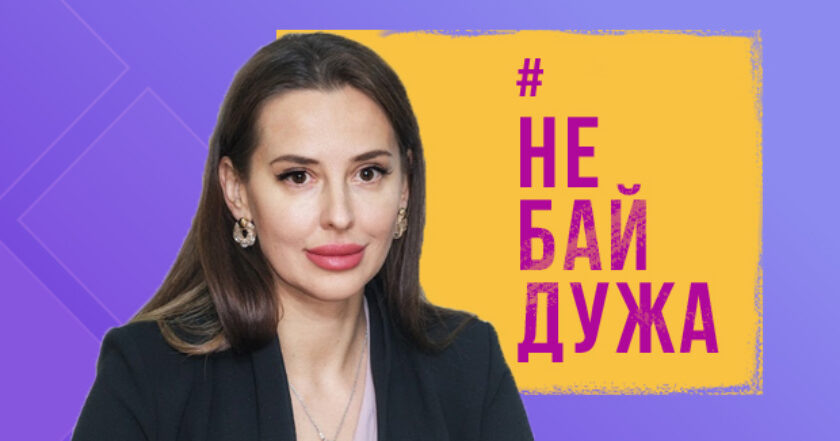
Jaanika Merilo is a Ukrainian public figure, reformer, adviser to the Minister of Digital Transformation Mykhailo Fedorov, and the Minister of Infrastructure Vladyslav Krykliiy. She used to work as a programmer specializing in innovative technology and held senior positions in investment funds. In 2015, Google and Financial Times nominated Jaanika to the top 100 of "innovators whose innovations change the world for better." She is a part of the team that has been implementing e-solutions in Ukraine since 2013.
Despite the immense number of achievements, hundreds of books she read, and successful agreements she signed, Jaanika still has to fight against stereotypes. She discusses that issue in one of her Facebook posts. Our editorial team was so triggered that we decided to learn more about who Jaanika Merilo is and what she had to struggle against on her way to the top.
We held the interview in a "quarantine" mode through videoconferencing. Jaanika is at home now, together with her son and her mother. Before the pandemics, she had to ply between several cities. To speak of quarantine restrictions: "Quarantine does get in a way, of course, but working from home is much more convenient," Jaanika believes. "Many people have realized that personal meetings are not essential, as we can discuss all questions through videoconferencing. I managed to "relocate" everyone to Zoom, and I really hope that it will be possible to keep working in this mode after the quarantine."
I was really worried about our online-meeting. Knowing that I was about to talk to a reformer, startup-er, philanthropist, and adviser to several ministers at the same time, my subconscious drew me a picture of a strict, pedantic and unwavering person. However, Jaanika is quite the contrary.
Who is Jaanika Merilo?
Jaanika is a very open person, who instantly wins your favor with her charming smile. She writes poetry, loves cooking (her signature dish is risotto), watching old movies, as well as reading. Contrary to my expectations, instead of a textbook on economics, Jaanika is now reading This Is How You Lose Her by Junot Díaz. In her teenage years, Jaanika was infatuated with crowd psychology and the development of Post-Soviet states. For a year and a half, she was studying theology at the University of Tartu and later got a degree in management at an English university.
– When does IT come into the picture?
– It has always been a part of my life. I happen to have only male friends, and all of them work in IT. When we were 13-14, instead of going to the night clubs, we went to computer classes, played games, and learned to code. For a reason, they say that we are shaped by the environment. Thus, I started programming. It was 1997, all departments were old-pattern. IT education back then was not even close to what we see today. Everyone learned from their own and others' mistakes, and the majority of IT specialists were self-taught. That's how I started coding. At my second job, Olivetti Systems, one of my duties was to create Internet-banks: real programming [laughs] – I had to write the code manually. This is the way I smoothly entered the field and still remain in it… However, I do not write the code manually anymore."
Later, Jaanika moved to Finland, where she lived for 5 years. Except for her work in IT, she had an op-ed on the markets and broker's boards in Russia, Ukraine, and other countries for old bankers of conservative Finland:
"I have been interested in the development of Post-Soviet countries since I was 16. Most appealing to me are economics, finance, internal processes, and "manufacturing consent." I was interested in critical processes taking place in Ukraine, the Baltic states, Russia. It is my hobby, I live for this, and for the work I do."
For 5 years after this, she was a board member of the foundation with $350 million, took part in establishing Ukrainian Venture Capital and Private Equity Association, and then was in charge of it for 2 years.
– So many different positions. Was it difficult to move from one to another?
I have always been in IT, in different formats. I started with coding, then moved on to managing funds that make investments. My responsibility there no longer entailed coding. I was a trend-watcher in charge of introducing new technologies. I think that I am "still there" trying to find something new and upscale it. This is what I do in Ukraine.
Ukraine and IT. How does digitalization progress?
In 2015, we had no e-services. Now, having worked in Ukraine for 5 years, Jaanika gives an account of the work done:
- Smart City Expo chose Dnipro as the best example of the digital transformation of the city;
- Ukraine passed the law on e-tickets and launched electronic payment in public transport;
- The i-Gov project, state services in digital format, was launched;
- Mobile-ID and Bank-ID introduced;
- Launch of the pilot project of e-election in Lviv and Dnipro, the possibility of electronic counting of votes;
- eHealth, doctor appointment through the Internet;
- the Law "On Private Space" was adopted; until last year, only the state could be engaged in space exploration, now the right to such activity was given to private companies.
And this is only one part of the projects. The heroine of our interview participated in each of them:
"The thing is that you cannot just go ahead and implement, for example, e-ticket. At the level of state bodies, Ukrainian legislation operates on the principle of "Everything not allowed is forbidden." That is, if the ability to pay for a ride with an e-ticket is not defined by law, you cannot use it. Therefore, each e-solution required certain legislation amendments. We had to fight for each project.
Thus, everything that seems logical – Mobile-ID, e-ticket, digital signature – was made through struggling and adoption of new laws. And then technologies were launched. All my projects were aimed at helping and supporting the ones who wanted to "make innovations." I decided for myself that launching 3 start-ups makes no difference, but creating a conducive environment, where people can implement their ideas, does. This is what I do here."
– All your projects are very different. Where do you get your ideas from?
– Some things seem quite basic. They function everywhere, but not yet in Ukraine. For example, the prototype of the electronic government i-Gov was working in Estonia for a long time. The project "Private Space" is so obvious! We can be developing solutions for space in Ukraine, and these are not just start-ups, – there are cool rockets that will be launched next or even this year in Texas, possibly under the Ukrainian flag.
I really hope that I can feel the trends. If there is a solution, we have a demand for it, there is a competitive niche, and an ability to realize this project, why not then?"
Jaanika explains that digitalization is about to reach its end in Ukraine, as many projects launched in 2013-14 function well without assistance:
"For example, i-Gov that was created by volunteers is now the Ministry of Digital Transformation, which is a huge body. E-ticket is also living a life of its own – upscaling, being launched in different cities. The space project is also completed. There is a law, and it's working. We are at the stage when our "kids" start living on their own."
– Which other projects would you like to implement?
– I would love to implement 112. As the universal emergency number for the ambulance, police, and firefighters. If there is an accident, you dial only one number – 112. And wait for the help you need. What have technologies to do with it, one might ask. Yet, they are a big part. We are talking about maps, route calculation, interaction through tablets, programs. I would like to put the finishing touch to the e-ticket. So it is also accepted in marshrutka (route bus). In order to do this, the legislation needs to be amended some more. But this is also the completion of the processes we started earlier.
– What do you plan on doing after digitalization is complete?
– I feel like I don't want to be an adviser who does theory. – I want to make something with my hands, something practical, for everything "big" has already been launched. At this point, I have several months to figure out what I want to do next.
I do not have a 10-20 years' perspective. I don't think that I could've guessed 10 years ago where I would be now. It seems that I think in five-year plans. If you take a look at my resume, this theory is confirmed. Most likely, it will be new technologies, startups – everything that revolves around artificial intelligence, cybersecurity, ecology, data science. It may be a fund-platform to support and develop new projects.
Difficulties: stereotypes
In one of her posts, Jaanika wrote that she often has to face the problem of stereotypical thinking. Women in business are still not taken seriously. As we know, equality is advocated, to a much greater extent, in Europe.
– Do you feel gender inequality in Ukraine?
– Yes. I feel it very acutely because it is done in an overt manner. First of all, many of the remarks made here are considered uncultured in European society. It seems to me that the environment begins to change not when there are prohibitions, but when society will be up in arms over it. Here, even at the highest level, deputies and ministers make insults narrowed down to "you are a woman."
It may change when people start to be judgemental about such statements condemning them in real life and on social networks. Then at some point, there is a critical mass of such views claiming that any humiliation, discrimination, prejudice is NOT okay. Such critical mass is already active in European society, in Ukraine it is not felt so much.
Some part of our society still thinks this is normal. Still, others think this is even cool. There are very few people like that in Europe. Offensive chauvinism is considered an indicator of the level of personal development – a stunted one. Unfortunately, it is more visible and less condemned in Ukraine. But eventually, ways of thinking change.
To encourage women to tackle such difficulties, back them up in developing their start-ups, Jaanika Merilo supports projects aimed at helping women in business. Among these projects are Wtech, an international community for female startup-ers, managers, and top-managers of technological companies, representatives of an e-commerce business; Women in Technology is a community of women who are building a career in the technical field. She participates as a mentor and member of a jury in hackathons organized for women- entrepreneurs. To get support, new opportunities for business, exchange experiences on a regular basis and meet new people, apply here, and become a member of these communities.
Using her own example, Jaanika keeps proving that the impossible is nothing. There are no limits and restrictions, and if you have enough courage, knowledge, and perseverance, you can achieve everything, and even make the state digital.




